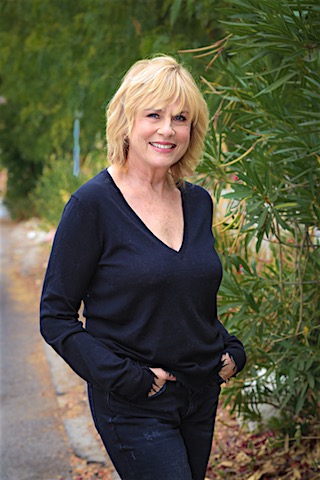HOPE FOR THE BEST
Back in the late eighties when the AIDS pandemic was terrorizing the world, President Reagan’s Press Secretary, Larry Speakes, was repeatedly asked if the President had anything to say, if he was concerned about the virus and planning on doing anything. Speaks said, “I haven’t heard him express concern.” Then he added with laughter, “This is hard work I’m doing and I don’t get paid enough.”
It’s nothing new to have our administration turn a blind eye to a crisis. It was unnerving then and it’s unnerving now. I did some volunteer work when AIDS was rampant. Health workers were exhausted like they are now. They held hands and stroked foreheads when they were still uncertain how the disease passed from person to person.
I attended a workshop at the time, facilitated by Death and Dying expert, Stephen Levine. A participant said that he didn’t know what to do with the fear that was paralyzing him. He was afraid we would never find a cure and he felt pessimistic about life. Stephen said something like this: “We don’t know what’s coming. A cure could take a while or a vaccine could be around the corner. There are a vast number of belief systems surrounding us, some filled with fear and some filled with hope. None of them are necessarily true. No one has a definitive answer, so why not choose a belief system that makes you feel hopeful?
During our current pandemic, beliefs are running the gamut: Conspiracy theories. Hope for a cure. Certain illness and death. Returning to the world we’ve left behind. The media, in its habitual way of handling difficulty is scaring the crap out of us and making us depressed and hopeless, so why listen? The facts are varied and confusing so we turn to storm und drang, a state of high emotionalism as rational thought takes a back seat.
We just don’t like not knowing. We want answers, even when there aren’t any, because being out of control feels intolerable. So we manufacture our own. I have a friend who’s addicted to reading articles that throw her into depression. Another friend can’t stop taking her temperature and becomes terrified when she sees another person. Still another thinks it’s a hoax and wearing a mask and gloves is completely unnecessary. My Fed Ex guy arrived at my home with a package yesterday. He rang the bell and when I came to the door, I said, “No mask? No gloves?”
“I have them in the truck,” he said, “but I don’t need to wear them. I’m in my own little bubble.” But he was standing at my front door.
There is so much that we don’t know as yet so I decided to chose a belief system that suggests hope and caution. I refuse to carry thought forms around that doom us to a terrible existence. And I refuse to believe that if I ignore it, it will “float away.” I cover my face and hands when I’m out and I avoid reading propaganda that feeds negativity. I’m trying to be reasonable and use my mental discipline to keep my mind calm and my atmosphere safe and comforting. Tolerance is important as we all figure out what “safe” means to us, stop judging anyone else, and find a way to avoid the fear that’s trying to draw us downward into a whirlpool of darkness and hopelessness. I get sucked in sometimes but I do my best to stay mindful, talk kindly to myself, get back on track, and stay in the present moment as much as possible. Like Mr, Levine said, There are a vast amount of available belief systems floating around, no one has the real answers, so why not choose hope and kindness?
How do you control your thoughts when you spin out of control?


Recent Comments